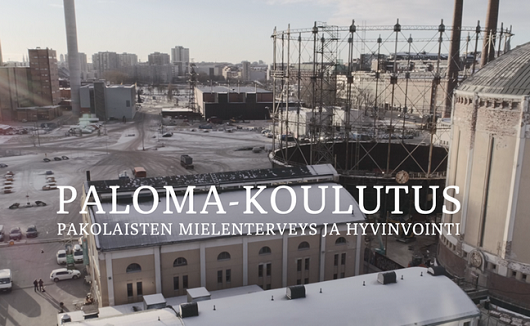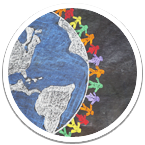Refugees and mental health

According to the official definition, refugees include both quota refugees and people who have been granted refugee status through the asylum application process. In everyday language, and here also, people with refugee backgrounds form a broader group of those who have come from similar circumstances, including for example both asylum seekers and people who have obtained a residence permit through family reunification.
There are many issues associated with being a refugee that can place a strain on mental health and cause stress. Mental wellbeing can be adversely affected by factors such as
- shocking past experiences
- events that took place while fleeing one's country
- the situation in one’s country of origin and surrounding countries
- linguistic and cultural challenges
- discrimination and racism
- loneliness and lack of inclusion
- financial uncertainty
- difficulties in accessing mental health services
- difficulties with family reunification.
On the other hand, people with a refugee background also have many resources and factors that can protect and strengthen their mental health.
People with a refugee background may have had shocking experiences
The majority (80%) of asylum seekers arriving in Finland have experienced shocking events either in their country of origin or while fleeing. These may include
- war
- torture
- sexual violence
- loss of loved ones
- loss of freedom
- witnessing death.
Children also experience the same kinds of traumatic events as adults. For a child, events such as being separated from those that care for them may also constitute a shocking or even traumatic experience.
The intensity and frequency of shocking events are important in determining their impact on a person’s health and wellbeing. People’s individual characteristics and the support they receive also affect how well they deal with shocking events. The majority of those who have experienced shocking events can cope with what they have experienced with the help of those close to them, inclusion, work, and spirituality. Some people, however, develop severe and persistent symptoms that require special treatment.
Fleeing one’s country strains mental health
Often a refugee’s journey is long and dangerous. It may take a long time, and some people may have to live for years in the poor conditions of refugee camps or outside of normal society. Along the way, family members may get separated from each other and eventually end up in different countries. Many children flee their country either on their own or without a guardian.
Settling into a new country also causes mental strain
The asylum application process itself is a challenge for mental wellbeing. One’s living conditions during the asylum process, the length of the process and the interviews involved can all put a strain on mental health. In addition, there are many different factors that pose challenges for mental wellbeing when settling in a new country:
- uncertainty about the future
- separation from loved ones
- linguistic and cultural challenges in the new country
- financial difficulties
- discrimination and racism
- difficulties in accessing mental health services.
Mental stress is very common among asylum seekers. According to the Health and Wellbeing of Asylum Seekers survey (TERTTU):
- 40% of adult asylum seekers experience significant symptoms of depression and anxiety.
- About 30% of young people reported significant psychosocial symptoms.
How to promote the mental health of people with refugee backgrounds
Individual level
The mental health of asylum seekers can be promoted during the reception phase through measures such as:
- supporting meaningful everyday life and activities
- enabling group-based activities that improve mental health
- providing conversational therapy and psychoeducation
- seeking to provide comfortable and appropriate housing conditions.
It is also important to provide asylum seekers with information on how they can advance their own wellbeing. Actions that support wellbeing include:
- regular physical exercise
- maintaining regular rhythms of sleep
- doing things that feel meaningful, such as studying or, if it is possible, gainful employment.
Promoting the mental health of migrants
In this video, Kordnejad tells his own story about adapting to life in Finland. This video is part of the multilingual ‘Mental Health for Migration’ video series.
Societal level
At the societal level, mental health can be promoted through measures which reduce racism and discrimination, for example, and increase experiences of inclusion.
Promoting the mental health of migrants
Services
In relation to services and service provision, attention should be paid to the many aspects of cultural sensitivity and service accessibility. It is important that service providers engage with the individual primarily as a person rather than as a refugee.
Also important is regular training of social welfare and healthcare professionals and investment in work guidance.
Cultural competence and cultural sensitivity (Support material website)
Mental health support in services
Working with the assistance of an interpreter
More information on an expert video
In the expert video psychologist Antti Klemettilä explains what refugee, asylum search and integration is. Video is part of PALOMA Training.

PALOMA Training is free, web-based and comprehensive training package, which gives you basic information about encountering people with refugee background and fostering their wellbeing.
PALOMA-training




